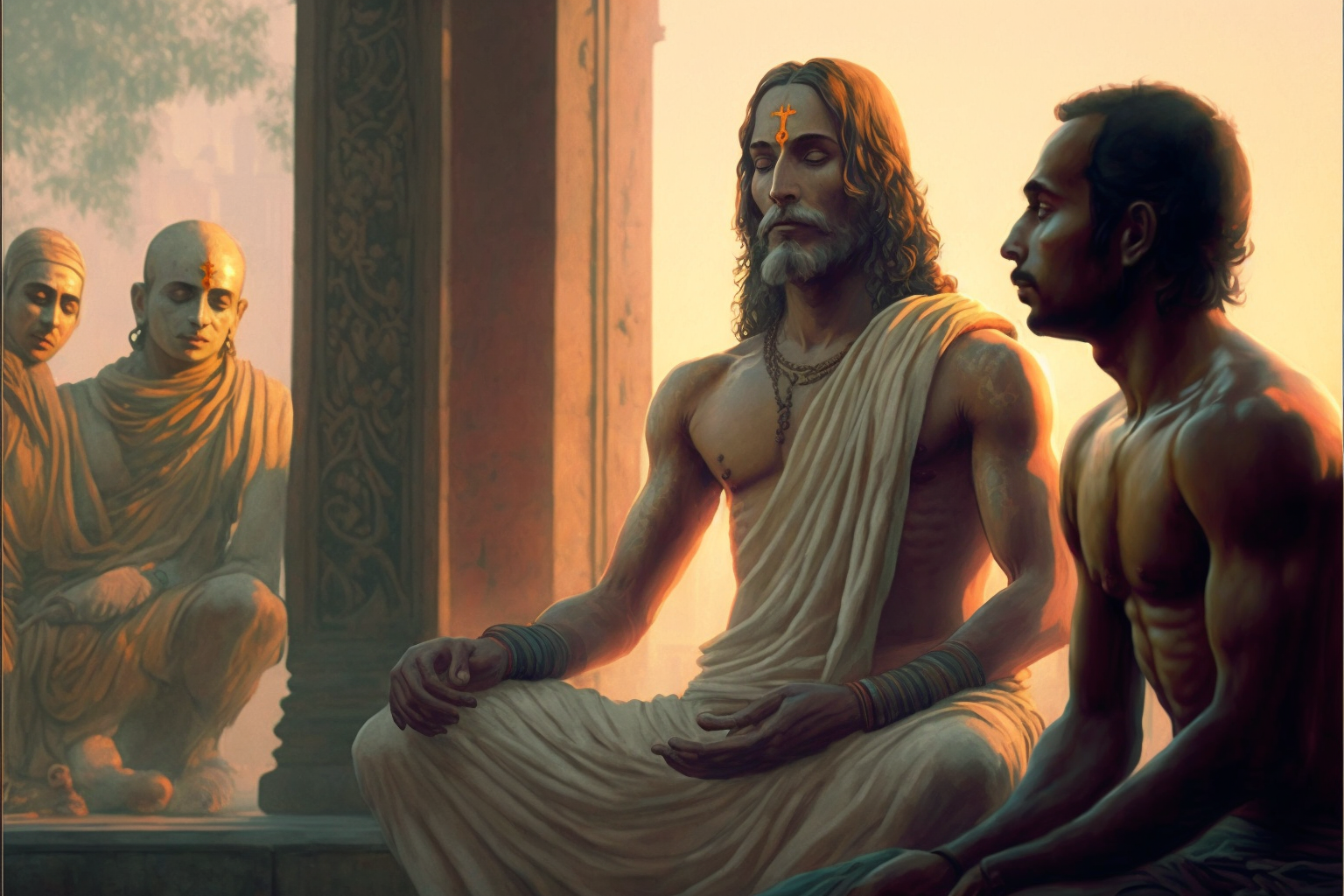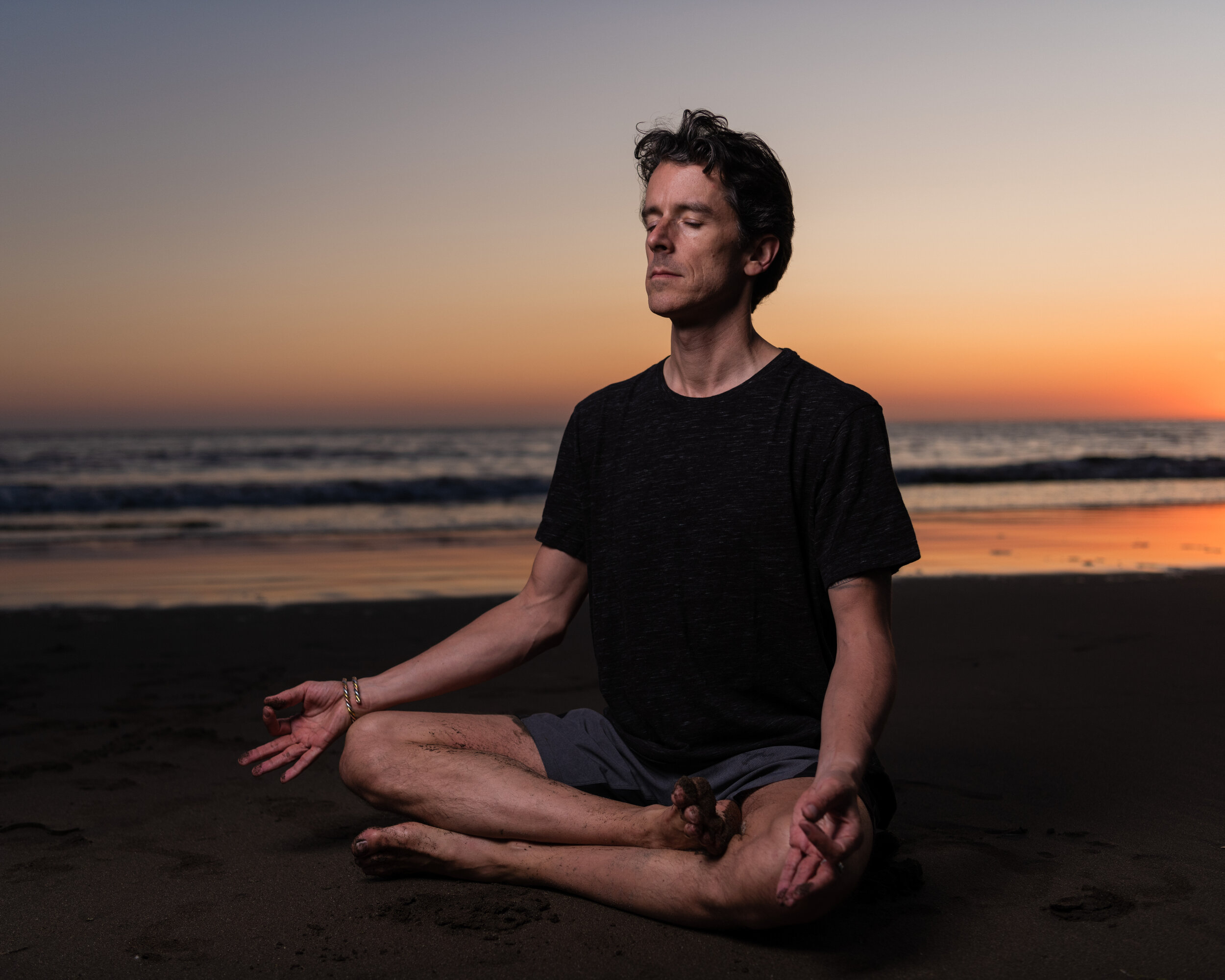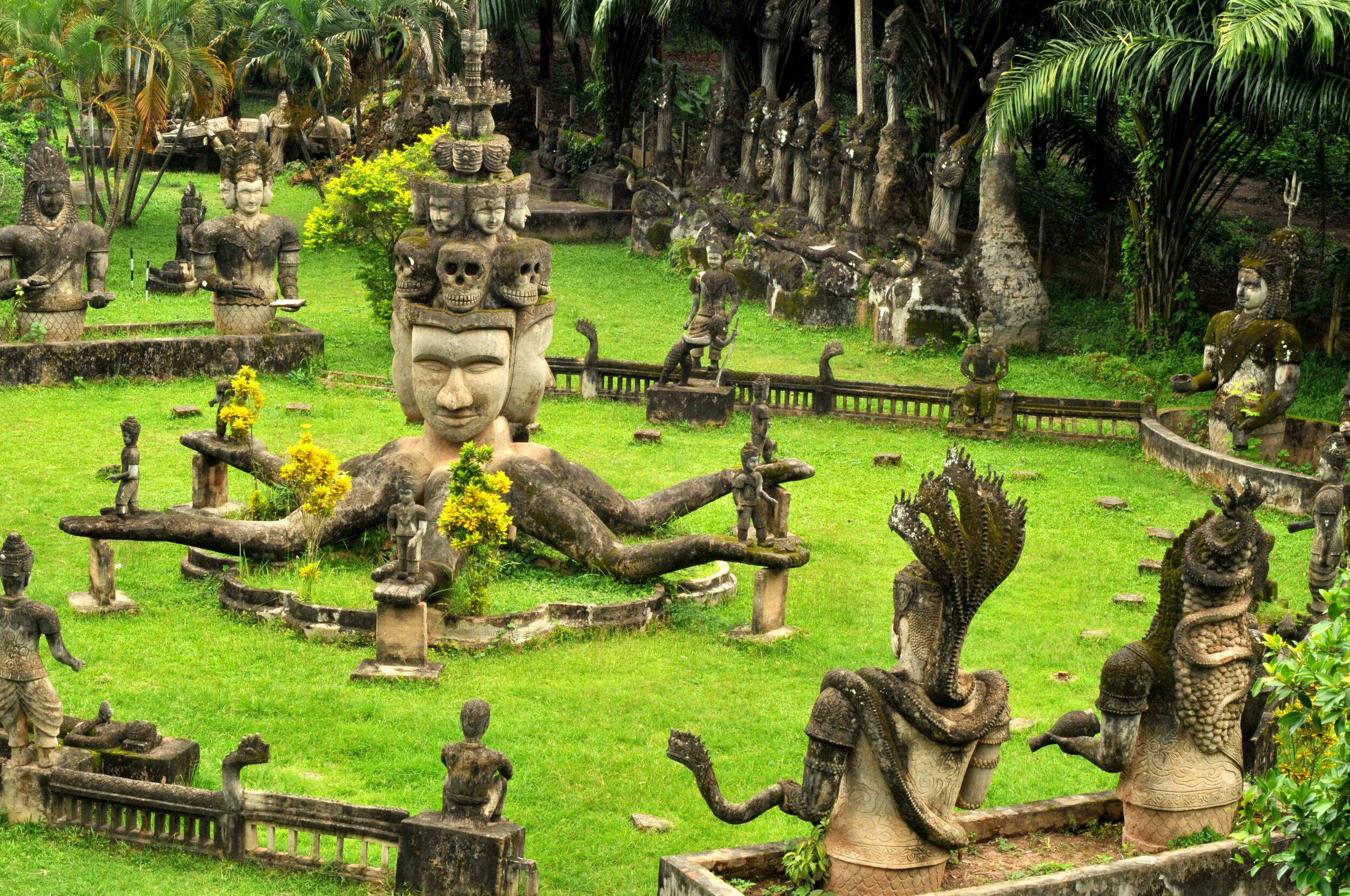
Listening To Music As Spiritual Practice
I explore the idea of music as a sādhāna, or spiritual practice. By using Nada Yoga as a jumping off point and incorporating relevant Western philosophical perspectives that support my central thesis, I intend to arrive at a cohesive and integrative approach to music as a spiritual practice, in the broad sense of spiritual practice in which the practitioner is embodied, comforted, attuned, liberated, and filled with joy and gratitude.

Why AI Needs More Polymaths and Philosophers
There are not nearly enough AI philosophers and ethicists working to shape the development of AI thoughtfully. Companies developing AI technology need to consider both immediate concerns and the broader and longer-term view of AI’s impact on humanity. AI technologies needs to align with human values, and to be made wiser.

Astrology, Free Will, and Creativity
The creative process and the workings of the Muse are a mystery. Take my novel Corporate Mind, Cosmic Heart, for example. In 2013, when I had the seed of an idea to write about spiritual crisis, finding universal love inside, polyamory, and what it means to be free and a man in the 21st century, the idea seemed to coalesce out of nowhere.

The Cosmic Renaissance
I have been thinking a lot about this new, more spiritual age we seem to be entering: what to call it, how to talk about it, and even how to help foster its expansion. We talked a lot about it in two of my courses in the philosophy, cosmology and consciousness program at the California Institute of Integral Studies this past semester. In a course with the same name we called it The Great Turning, using Joanna Macy’s phrase. In another course, we contemplated the possibility of a “Second Axial Age,” referencing a first Axial Age that took place circa 500 BCE around the time of the Buddha, Patanjali, the Upanishads, the Greek philosophers, and Jewish prophets. So, for my final paper in my Intro to PCC course I explored what spiritual traditions we might incorporate into the traditions of the first Axial Age to forge a new spirituality and world view: Bhakti Yoga, Tantra Yoga, and pre-Roman Christianity. I propose calling it The Cosmic Renaissance.

Meditation: More Essential Than Ever in 2021
I am offering a 4-week meditation course starting February 3rd, 2021. In this course you will learn a traditional meditation technique that is simple and accessible, yet powerful, and adapted to modern times. Elemental Meditation is a mantra-based meditation technique that also incorporates a subtle breath kriya from the ancient Himalayan Yog-Vedantic tradition. The technique is simple and approachable yet powerful and highly effective.

Moving Toward Wholeness through Yoga & Plant Medicine
In this post, I will talk about how sacred plants and yoga can be complementary practices (providing access ultimately to the same experience of Unity Consciousness) and how yoga can also be a viable alternative to working with plant medicine, especially the holistic, transformational style of yoga that I teach. I offer Elemental Yoga as both an integrative complement to working with plant medicines and a viable alternative for those who are not able or not inclined to work with plant medicine. I describe specific integrative practices below, and will be offering plant medicine integration practices through a private online yoga group starting in January 2021.

The Liberating Power of Disappointment
What I would like to convey in this post is how powerful a teacher disappointment has been for me and invite you to embrace your own disappointment as a tool for growth and expansion. Or at least a signal for where you could intentionally shift your orientation.

What Is Kundalini?
Kundalini is arguably one of the most important concepts in yoga, and one that’s little understood in the West, especially if you’ve primarily been practicing postural yoga.
Like most ineffable experiences, something as profound and powerful as kundalini is hard to describe with mere words. You could say the same thing about kundalini that Lao Tzu said about the Tao: “The tao that can be told is not the eternal Tao.” The concept is not the experience. But I will do my best nevertheless.

Fluctuation Happens: The Yoga of Doubt
“Yoga is bullshit.” I realized not long ago that some part of me felt that way. I wasn’t consciously thinking that of course. But I had noticed that my “yoga practice” had fallen off precipitously. Even though I had been practicing for over fifteen years and teaching for a decade, suddenly I wasn’t doing any asana, kriya, or pranayama. Here’s how I found my way back to a deeper expression of the practice.

Elemental Yoga Is for Everyone
I’ve had a number of old friends tell me that they don’t come to my yoga classes because I “spent all those years studying in India” and that they’re therefore “not nearly good enough” for my classes. This couldn’t be further from the truth. My classes are for everyone. There’s no such thing as not good enough for a yoga class. If that’s the case then it’s the teacher’s fault.
Even though the Elemental Yoga classes I teach aren’t your “typical” Western yoga class focused exclusively on asana (the physical poses), they are absolutely all-levels. In fact, I find that the less experience with Western yoga you have the easier it is to embrace the holistic, full-spectrum yoga practice that I offer; fewer pre-conceived notions about what yoga is and what being “good at it” means the better.

Jñāna Yoga: Refining the Intellect
In Sanskrit, jñāna means ”knowledge” or “cognition.” It’s the branch of yoga that is concerned with refining the intellect, accessing wisdom, and using spiritual knowledge in order to enter the state of yoga, of unity with Totality. In writing this post I’ve come to realize that jñāna yoga is quite possibly the most difficult aspect or form of yoga to write and talk about. But it’s also crucial that we explore it. It’s one of my favorite yoga practices.
We can refine the intellect in a number of ways. We can study sacred yogic texts (or any spiritual texts), like the Yoga Sutras or the Bhagavad Gita. We can spend time in sangha (spiritual community) and attend satsangs (wisdom talks) with spiritual teachers. Meditation is especially powerful as a jñāna practice.

Elemental Yoga: Celebration
In the yoga traditions through which I’ve traveled, the lineages from which I draw out the teachings that resonate most, there are two modes to life: evolution and celebration. For example, this is what the ancient Tantrikas believed, which is no surprise to anyone, given how very sensual even the classical, pre-California Tantrik practice has always been.
In the past five posts I’ve offered a tour of the five elements of the Elemental Yoga practice and the emphasis has been on evolution / expansion, even though a bhava of celebration is always woven in throughout all the practices.
In this post I’d like to talk about the importance of celebration.

Elemental Yoga: Space Practices
S P A C E. Akasha. The fifth element. The power of the word, and the power of silence. The transmutation of ignorance into pure awareness. Self-expression. Speaking from the heart. Receptivity. The ability to truly listen. Access to theta and gamma brain states.
The Elemental Yoga practices associated with the element of space are the subtle kriyas and yogic meditation.

Elemental Yoga: Air Practices
A I R 🌬 Vibration. Mantra. The unstruck sound. Anahata. The heart-mind. Bhakti and jñāna yoga. Spiritual community and the study of the self.
There’s a lot to unpack in the air element. So in this fourth post in the series I’ll focus primarily on the mantra elements of the practice and the anahata chakra, leaving discussion of satsang, wisdom, spiritual community, and svadhyaya to later posts.

Elemental Yoga: Fire Practices
F I R E. Agni. 🔥 Purification. Passion. The transmutation of matter into energy. The burning away of impurities. Tapaha. Fire is both matter and energy: a mixture of incandescent gases (matter) and light and heat (energy).
The first mantra of the oldest yogic text — the Rig Veda — tells us that life begins with fire. In the Vedas agni represents all concepts of spiritual energy that permeates everything in the universe. In the Upanishads, agni becomes any energy or knowledge that dispels a state of darkness, that transforms and creates an enlightened state of existence.
In the Elemental Yoga practice, the fire element represents pranayama, warrior breaths, and the Himalayan kundalini kriyas that we practice.

Elemental Yoga: Water Practices
W A T E R. The seat of desire, and the transmutation of desire into dharma. The divine feminine. Receptive. Flowing. Adaptable. Strong.
Water is one of the most powerful and versatile elements. It is completely receptive and flexible yet strong enough to wear down the hardest stone. It reminds us that there is strength in our softness, in our vulnerability, in being adaptable.
In the Elemental Yoga practice, water represents the more fluid, receptive, and feminine practices of laya movements and sacred rituals like puja.

Elemental Yoga: Earth Practices

The Yogic Perspective on Desire
Many people on the spiritual path have a complicated relationship with desire. Because of something we heard or read somewhere we see desire as part of the “problem,” an obstacle on the path. We harshly criticize ourselves for having desires, forgetting that we exist because of desire, that everything exists because of desire—the desire of Consciousness to dance, to play, to experience every possible way of being. Perhaps we deny our most ”basic” desires, or judge ourselves for succumbing to them. On top of all that, for those on the spiritual path, there is the added burden of worrying that we’re attached to our desire to expand, to transcend, to reach some kind of enlightened state. And we may very well be. It can get quite complicated.

What Is Kriya?
If you’ve delved deeply enough into yoga you have probably come across the Sanskrit word ‘kriya.’ Perhaps you’ve even practiced some kriyas in a Yogi Bhajan Kundalini Yoga class, or you’ve seen seated yogis in the park with their arms in the air doing some kind of strange breathing technique but didn’t know what it was. In this post, I’ll attempt to demystify kriya a bit.

Why New York City Is Ready for Elemental Yoga
I think New York City is ready for a more integrated, holistic style of yoga. The emergence of mindful, progressive community event spaces like The Assemblage, The Alchemist’s Kitchen, and Maha Rose show that New Yorkers are embracing their mystical, spiritual side more than ever. These new community spaces are more willing to experiment with innovative styles of yoga.

